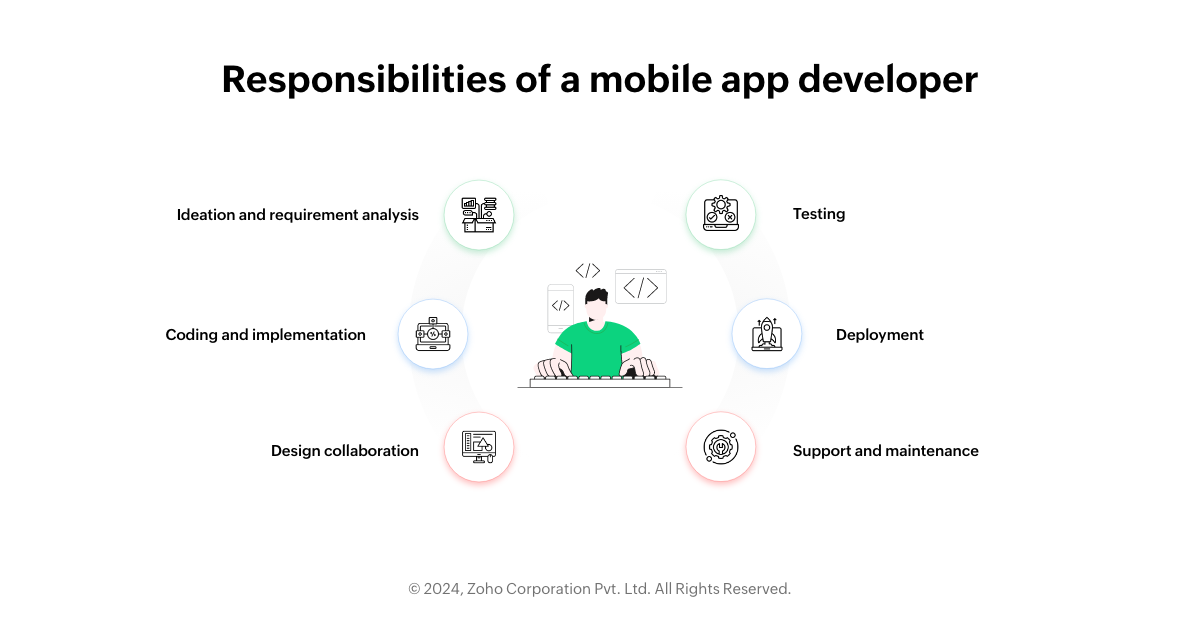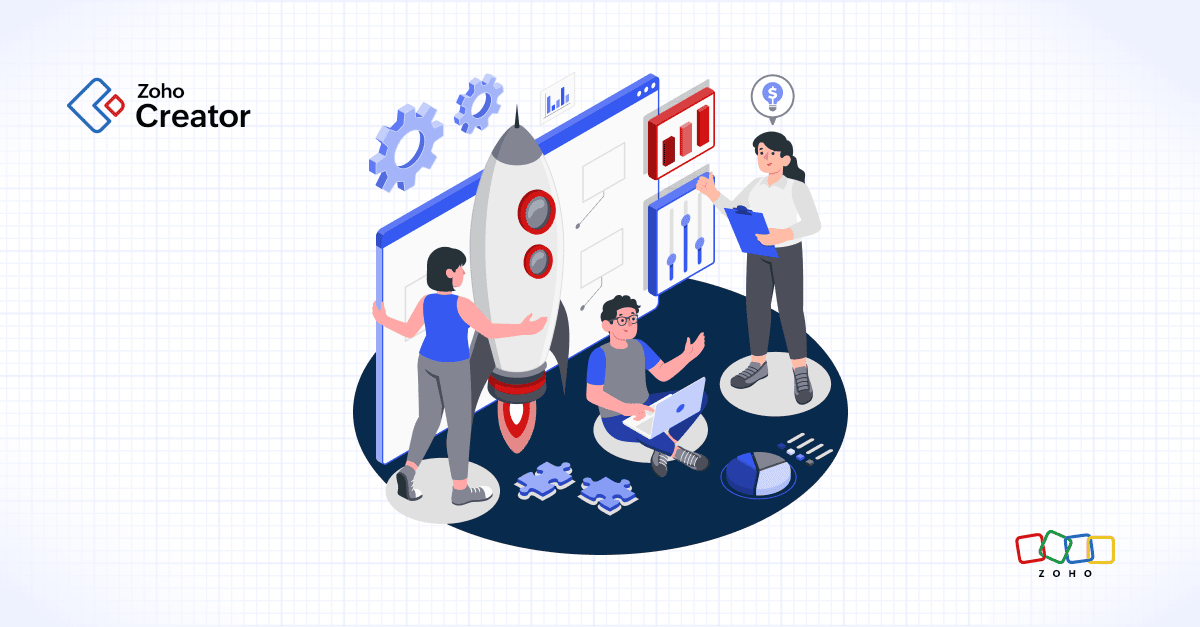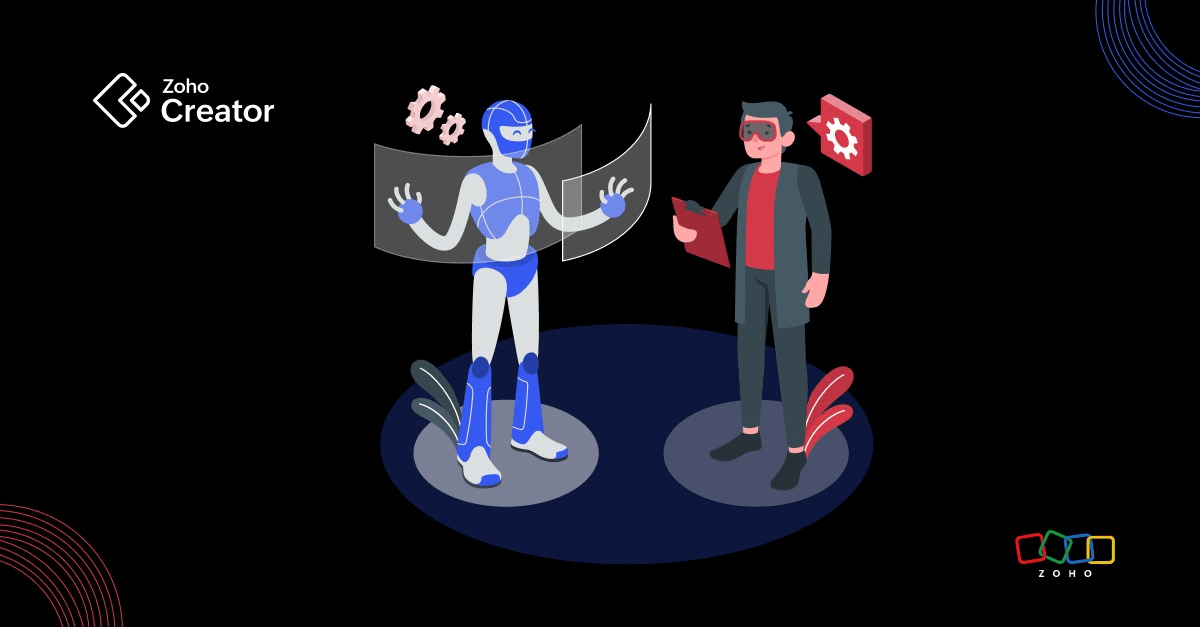- HOME
- Know Your Tech
- Explaining the role of a mobile developer
Explaining the role of a mobile developer
- Last Updated : December 4, 2025
- 1.2K Views
- 9 Min Read
In the vast landscape of tech, the mobile application development process stands as a pillar of sophistication and ubiquity of mobile platforms and web technologies. With our world becoming increasingly interconnected, mobile applications and web technologies have become the cornerstone for how we conduct business, socialize, and even access essential information.
Highlights
- Mobile developers build apps for iOS, Android, or cross-platform ecosystems.
Their work includes UI design, coding, testing, debugging, and optimization.
They use frameworks, SDKs, APIs, and tools to speed up development.
Modern developers collaborate closely with designers and product teams.
Low-code and AI tools are changing the scope of mobile development roles.
As we immerse ourselves deeper into the digital age, the role of a mobile application developer unfolds into a complex tapestry of innovation, challenges, and fulfilling professional journeys.
The significance of mobile development and developers
Before we delve into the intricate details of mobile development, it's pivotal to appreciate its prominence in the realm of technology. Mobile development, the process of creating software applications that run on a mobile device, is imperative in modern tech ecosystems.
From the Android operating system to iOS and a myriad of devices in between, this field is as diverse as it is essential, underpinning the app marketplaces.
The tech industry continually witnesses seismic shifts, with mobile development emerging as a standard. The advances in mobile hardware, the ever-evolving demands of existing apps, and the ceaseless innovation in software and cloud services are facets that fan out into the domain of mobile development.
With the expansion of mobile development, the role of a mobile developer becomes more prevalent. To understand the job better, we'll uncover the skills and responsibilities intrinsic to a mobile developer's role, explore the challenges they face, and sketch out the exciting career journey within this dynamic sector.
Skills and expertise
A mobile developer's canvas is vast, colored by a diverse set of skills that amalgamate into the art of creating captivating and functional mobile applications. Let's unravel the key proficiencies necessary to excel in this role.
Java, Kotlin, Swift, and more
The crucial starting point for any mobile developer is to develop proficiency in programming languages. For creating Android apps, Java has long been the stalwart, but its successor, Kotlin, has become increasingly popular for developing enterprise apps with its modern syntax and seamless integration with Android Studio.
On the iOS front, Swift has swiftly (pun intended) replaced Objective-C as the programming language and platform of choice for its safety features, ease of learning, and powerful capabilities. Mobile developers must be adept at not just one programming language, but often multiple programming languages to cater to the demands of cross-platform development, enterprise apps, expanding features, and a diverse user base.
React Native and Flutter
Gone are the days when coding natively for native apps on each platform was the default route for native application development. In today's landscape of native development, frameworks like React Native (which leverages JavaScript) and Flutter (powered by Google and using the Dart language) are transforming how developers take native code and create cross-platform native applications together.
UI/UX principles
An application's success hinges not only on its functionalities but equally on its user interface (UI) and user experience (UX). Mobile and web developers need to have a keen understanding of the principles governing design, ensuring the web apps they craft are intuitive, aesthetically pleasing, and accessible.
Empathy for the end user, coupled with Android developers with a foundation in human-computer interaction, helps developers create the experiences hybrid apps create that resonate with users. This sensitivity to design is creating an art form; web apps that complement the technical craftsmanship of coding elevate the app to more than just a functional tool for business owners, but a delight for people to use.
Testing and debugging
Building an app is only half the battle; ensuring its robustness and reliability is equally paramount. Mobile developers engage in extensive testing, employing various strategies from unit tests to UI automation, to ensure their mobile applications perform as expected across multiple platforms, different devices, and under diverse conditions.
Debugging—troubleshooting and resolving issues—requires a blend of technical know-how and problem-solving skills. As a mobile developer, the journey doesn’t stop at the completion of the code; the pursuit of perfection extends to ensuring the web app's flawless operation.
Responsibilities
The mobile app development lifecycle is a well-oiled machine with many moving parts, and the mobile app developer is the craftsman who orchestrates the whole app development process. Beginning with ideation and continuing through maintenance, the mobile app developer's role is multifaceted and never static.
Ideation and requirement analysis
In the nascent stages of an app’s birth, mobile developers often collaborate with product managers and stakeholders to conceptualize the next mobile app developer. This involves understanding the market, using data sources to identify user needs, and translating these insights into a clear, actionable vision for mobile application development and the business owner building their mobile apps.
Coding and implementation
With the vision laid out, the mobile developer leaps into the implementation phase of building apps and coding new features. They must harmonize the back-end logic to build apps with native code for front-end interactions, ensuring the app operates seamlessly and delivers on its intended purpose.

Design collaboration
Developers frequently work in tandem with UI and UX designers, infusing creative input with their technical acumen to produce a final design that excels not only in aesthetics but in the user experience it delivers. This collaborative effort is a testament to the symbiotic relationship between design and development.
Testing, deployment, and support
Quality assurance becomes the focal point as the app, the code, and the process nears completion. Mobile developers conduct rigorous testing to mitigate bugs and issues, preparing the app for deployment. Post-launch, they are often at the forefront of support, addressing user feedback, and rolling out updates to enhance app performance and add features and feature sets.
Continuous learning and adaptation
In the tech industry, standing still is akin to regressing. For mobile and web developers both, continuous learning is not just an advantage but a necessity. New versions and features of the operating system and systems, updates to frameworks, and emerging technologies continually reshape the app development process and landscape.
Staying up to date with the latest technologies
Mobile app development is an ever-changing field, and to succeed, developers must keep pace with the latest industry trends. Whether it’s adopting machine learning for smarter apps or integrating blockchain for secure transactions for hybrid mobile apps, staying informed and experimenting with new tools is vital to push the boundaries of mobile app development.
Community involvement and online learning
The developer community is a rich source of knowledge. Engaging with peers through forums, attending meetups, and contributing to open-source projects can provide valuable insights into other technologies and foster a supportive network.
Platforms like Udemy, Coursera, and YouTube host a plethora of tutorials and courses, allowing developers to upskill from the comfort of their homes. The accessibility of online resources has made the quest for knowledge more democratic and enjoyable.
Specialization and generalization
As the mobile development field expands, a debate arises around the depth of specialization versus the breadth of generalization. Specializing in a certain niche offers in-depth expertise, while being a generalist can provide versatility and agility. The choice ultimately depends on the developer's career goals and the demands of the market.
Challenges faced by mobile developers
The dynamism of mobile development presents numerous hurdles that developers must navigate with finesse. From ensuring compatibility across a myriad of various mobile platforms and devices to tackling security concerns, the path to deploying mobile applications developed by a successful mobile app developer is anything but straightforward.
Device fragmentation
There's a device in the Apple App Store for every taste and budget, which is a testament to the vibrancy of the mobile device market but a nightmare for developers. The fragmentation of mobile devices and their respective operating systems poses one of the Apple App Store's most significant challenges. An app that works fluidly on one device may encounter issues on another operating system, necessitating thorough testing and optimization.
Security concerns: Protecting data and user privacy
As mobile apps handle an increasing volume of sensitive data, the onus on developers to prioritize security has never been more critical. From building apps to using data sources, implementing secure coding practices, and staying vigilant against ever-evolving threats, mobile app developers must play a pivotal role in safeguarding user information.
Career path and opportunities
For those with a penchant for mobile development, the journey is not just about writing code; it's about sculpting the digital future. The prospects for growth and advancement are rife, and the sheer breadth of opportunities can be daunting yet exhilarating.
The path to advancement
The trajectory of a mobile developer’s career could take many routes. Becoming a senior developer, a lead developer, or eventually a CTO are common aspirations. Each step involves developing not just technical prowess but also leadership skills, developing a strategic mindset, and the ability to develop, mentor, and guide teams.

Emerging technologies within mobile app development
As technology evolves, new opportunities arise within mobile app development. The realms of augmented reality (AR) and virtual reality (VR) are fertile grounds for innovation, bridging the gap between the physical and digital worlds of existing apps' user experiences. The Internet of Things (IoT) is another frontier, as interconnected smart devices redefine the boundaries of what a mobile app developer can achieve.
Freedom and flexibility: Remote work and freelancing for a mobile applications developer
Mobile developers often find themselves in an advantageous position when it comes to work arrangements. With the tools and technologies enabling remote collaboration, mobile app developers can work from anywhere in the world. Freelancing is also a popular choice, offering independence, a varied portfolio, and the freedom to explore personal projects.
Conclusion
The role of a mobile developer is one of intricate significance and vast potential. From crafting the apps that define our daily interactions to spearheading the technological advancements of tomorrow, the mobile developer’s journey is rich with opportunity and challenge.
Aspiring mobile and web app developers are encouraged to embrace the complexities of the field and to relish the opportunities to create, learn, and grow. The ever-expanding universe of mobile and web app development offers not just a job, but a platform to contribute to a digital ethos that is shaping the very fabric of our society.
For those on the cusp of diving into mobile application development, the horizon is bright and brimming with untold possibilities. So, arm yourself with the skills, prepare for the challenges, and embark on this exhilarating journey into the world of mobile application development. Your next app might just be the one to redefine an industry, inspire millions, create, or change the world.
FAQs
What does a mobile applications developer do?
A mobile applications developer is a professional who designs, develops, and implements applications for mobile devices. They work closely with cross-functional teams to define, design, and ship new features for the mobile application. They also identify and correct bottlenecks and fix bugs to improve app performance.
What skills are needed for a mobile app developer?
Key skills for a mobile app developer include proficiency in programming languages such as Swift for iOS and Java for Android, an understanding of UX/UI principles, problem-solving skills, and knowledge of back-end computing.
What qualifications do you need to be a mobile app developer?
Typically, a bachelor's degree in computer science or a related field is required. However, practical skills and experience in mobile app development are often more important. Certification in specific programming languages or in mobile app development can also be beneficial.
Is a mobile application developer a good career?
Yes, mobile application development is a promising career path due to the growing reliance on technology and mobile apps. With the rise of smartphones, the demand for new and innovative apps is increasing, making mobile app development a lucrative field.
How much money do you make as an app developer?
The salary of an app developer can vary greatly depending on factors such as location, level of experience, and the complexity of the apps being developed. On average, app developers can expect to earn a competitive salary that is commensurate with their skills and experience.
Is an application developer the same as a software developer?
While both roles involve coding and software design, an application developer typically focuses on creating software applications that run on a specific platform or devices like smartphones, while a software developer often works on broader systems or platforms.
Does an application developer require coding skills?
Yes, coding is a fundamental part of application development. App developers use programming languages to create, test, and maintain apps.
How do I start as a mobile app developer?
To start as a mobile app developer, one should first gain a strong understanding of computer science principles and coding. Learning programming languages specific to the platform you wish to develop for is also crucial. Building a portfolio by creating your own apps or contributing to open-source projects can help showcase your skills to potential employers.
How are mobile applications developed?
Mobile applications are developed through a process that includes idea conceptualization, market research, wireframing and designing, coding and development, testing, and launching. Post-launch, apps also require regular maintenance and updates.
What are the steps for mobile app development?
The steps for mobile app development include:
- Idea conceptualization
- Market research
- Wireframing and designing
- Coding and development
- Testing
- Launching
- Maintenance and updates
What is needed for mobile application development?
Mobile application development requires a clear concept, understanding of target users, knowledge of programming languages, and an understanding of the platform for which you are developing.
What are the four major development approaches when building mobile applications?
The four major approaches to mobile app development are native apps, web-based apps, hybrid apps, and cross-platform apps. These approaches vary in terms of their coding language, development environment, performance, user experience, and distribution method.
Click below to explore our comprehensive guide to mobile application development.
 Pranesh
PraneshPranesh is a serial entrepreneur and the Founder of Studio 31, a 12 year old, deep tech enabled, wedding photography and film company that has been recognized by many publications for its zero inventory model and unique culture in the unorganised sector.
Zoho Creator has helped Studio 31 redefine its business model by automating over 37 processes and save three hours every single day. He is also a growth consultant for Zoho Creator and helps the team address real-world challenges from a customer's point of view.



